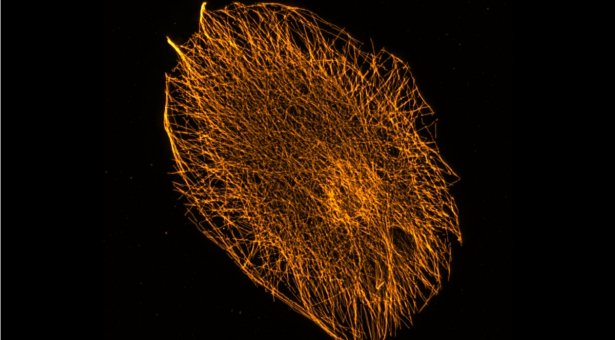
Two talented early-career scientists have won £2.5m funding from the global health charity Wellcome Trust, to carry forward their influential research at the John Innes Centre.
Dr Dmitry Ghilarov has won a £1.3m five-year Wellcome Trust Sir Henry Dale Fellowship, an award jointly funded by the Royal Society. It is the first time this prestigious award has been received by a John Innes Centre scientist.
Dr Tung Le has won a £1.2m Wellcome Trust five-year Investigator Award which is designed to enable independent researchers addressing some of the most important questions in science.
Dr Ghilarov, currently based at the Malopolska Centre of Biotechnology, Jagiellonian University, Krakow, Poland, won the fellowship for his research vision titled: 'Ringing the changes: how bacterial enzymes convert ribosomally-synthesised peptides into antibiotics'.
He is due to take up the fellowship-funded post as a Group Leader in the John Innes Centre Department of Biological Chemistry in September 2021.
Dr Ghilarov's research focuses on the biology of bacterial natural products with the aim of harnessing the potential of these microbes for biotechnology and medicine. His strong track-record of collaboration with John Innes Centre scientists has previously resulted in high-profile publications probing the biosynthesis of peptide antibiotics and their potential as drug and antibiotic candidates.
"This is truly fantastic news: my goal is to develop new approaches to natural product discovery by understanding the fundamentals of antibiotic biosynthesis, and the Sir Henry Dale Fellowship will allow me the freedom and resources to build my own team at an institute with a long tradition of antibiotic research. I am greatly looking forward to joining such a stimulating environment surrounded by colleagues with complementary scientific interests," he said.
Dr Tung Le's research focuses on understanding bacterial chromosome structure and its impact on DNA replication and segregation. Understanding molecular mechanisms that regulate protein-DNA interactions might provide fundamental insights into these key biological processes. Additionally, his research on plasmid and chromosome segregation may inform strategies to combat plasmid-borne antibiotic resistance.
Dr Tung Le said: "I am very grateful to receive this funding from the Wellcome Trust which will allow us to do fundamental research into bacterial chromosome organisation and segregation. History has shown that new practical applications and innovations, such as novel classes of drugs, stem from fundamental discoveries."
"I am also hugely grateful to lab members, colleagues at the John Innes Centre, and our scientific platforms for support and collaboration that made this application successful." Both researchers will deliver their projects within the BBSRC-funded Molecules from Nature (MfN) Institute Strategic Programme (ISP) at the John Innes Centre, and draw on the broad expertise of the research community based at the Norwich Research Park.
The awards were welcomed by group leaders within the MfN ISP, Professor Tony Maxwell and Professor Mark Buttner who commented:
"These awards are great compliments to Dmitry and Tung: Sir Henry Dale Fellowships and Investigator Awards from the Wellcome Trust are prestigious and highly competitive. Awards such as this also help the John Innes Centre to diversify its sources of funding."






